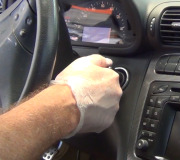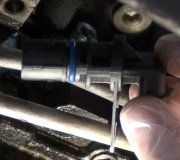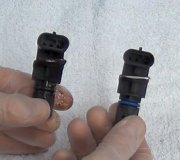You didn't say what the symptom was so I have to assume the engine started with the jump-start. That would imply it was cranking too slowly to start. If the battery and generator passed professional load tests, suspect the battery cables or their connections. Ford has had a lot of trouble with the strands of copper wire corroding away under the insulation where you can't see it where it bolts to the starter. A jump-start usually will not help in that case.
If the generator was only tested for the voltage it was developing, that is not conclusive. If the voltage is right, that only proves it and the rest of the wiring are working. The generator can still have a defective diode which will reduce its output current capacity to exactly one third of its rated output. That is usually not enough to meet the demands of the car's electrical system so the battery has to make up the difference. That will slowly run it down as you drive. A jump-start WILL take car of that.
Another one of the many problems that get lumped in as a "no-start" condition is caused by a sensor failing by becoming heat-sensitive. Some of them fail most commonly when stopping for gas or anywhere else for a few minutes. While driving, the natural air flow keeps those sensors cool. When you stop for a short period of time, the heat from the engine migrates up to those sensors causing them to fail. The engine will crank normally but won't start. A jump-start won't help that, however, those sensors cool down and often start working again in a half hour to an hour. If you had to wait that long for help to arrive, the sensor might have cooled enough to work so the engine started right up when it was being jump-started. That is a coincidence, not proof of a battery or charging system problem.
The best place to start is by measuring the battery voltage with the engine running. It must be between 13.75 and 14.75 volts. If it is low, suspect the generator or the built-in voltage regulator. There's an easy test to determine which one is the cause. If it's the regulator, it can be replaced without replacing the entire generator. If the voltage is acceptable, have a professional load test performed by your mechanic. There's different generators available but yours should be able to deliver around 80 to 100 amps. If all you can get is around 25 to 35 amps, it has a bad diode and must be replaced. With one bad diode out of the six, "ripple" will also be very high. Some testers list ripple as a voltage but most just show it from low to high on a bar graph.
SPONSORED LINKS
Tuesday, February 28th, 2017 AT 12:12 PM




